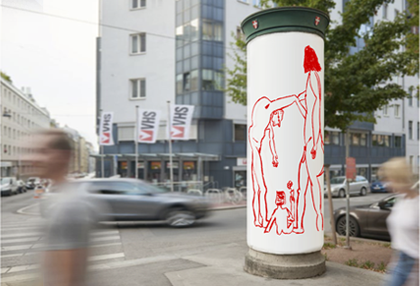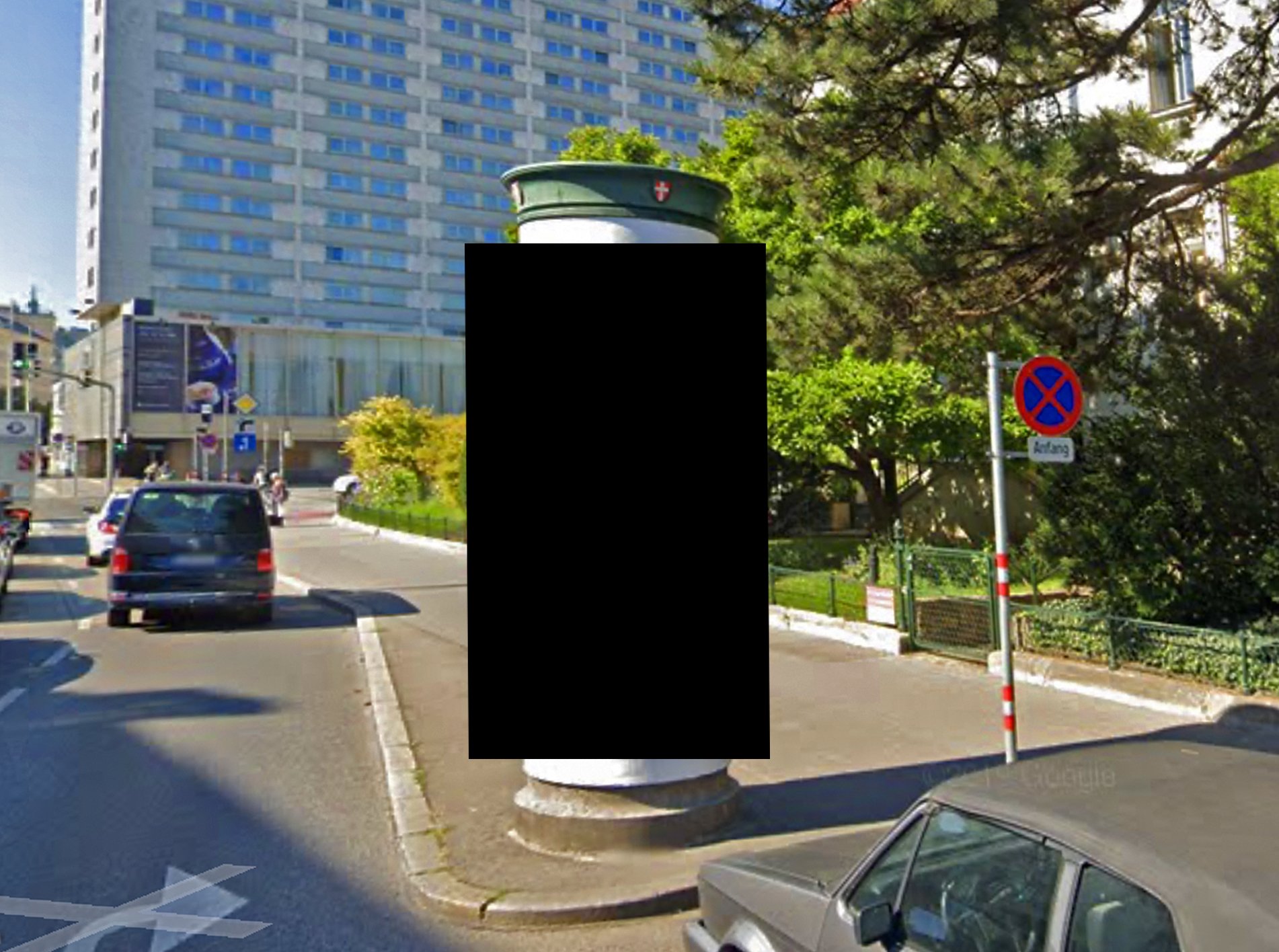OSCAR CUETO: NOTES ON CENSORSHIP
-by Oscar Cueto (MUME)
I have experienced censorship in different ways. I had only a brief encounter with military and totalitarian censorship when I was working on a project about the Graffiti of the Revolution in Cairo—I was warned that certain artistic positions have disastrous consequences, so I had to be careful about what I said and how I said it.
Here in Austria, I have also had experience with political censorship, although this is more difficult to prove; it is sneaky, efficient, and silent because it uses the strategy of "throw the stone and hide the hand"; like the time when the billboard was "removed" and the common poppy field of the project "Mohnmanie" (Poppy Mania), I presented in collaboration with Manuela Picallo Gil (AT, 1985) at Notgalerie and which reflected on poppy production and the tabloid press was "cut down".
The latter cases have really concerned me because they have been quite open in their censorious "arguments". A few months ago, after posting documentation about "Of Exceptions and Miracles", a project I did in Mexico, my personal account on a social network was canceled for inappropriate content, without any further details despite the fact that I appealed several times.
Just the last week, here in Vienna, the contract for the rental of a Morris column to be part of the 12th edition of MUME (Museo Mexicano/Mexican Museum) was unexpectedly canceled. The drawing by Camila Rhomberg (BR, 1978) to be displayed on the column as part of the exhibition "Fantasies of Group Meetings", curated by Lorena Moreno Vera (MX, 1986) for the MUME, was considered by the management company to be literally "violent, negative, and pornographic", the reason stated for the cancellation of the contract. Ironically, the project is about imagining new forms of communication that help us overcome limitations and social hygiene, consequences of the COVID19 Pandemic. Would it have been different if Camila Rhomberg were Egon Schiele or Amedeo Modigliani?
I worry that our opinions (artistic or otherwise) must constantly be approved under the judgment of what is morally acceptable, appropriate, and positive. Personally, I worry above all that I begin to limit myself out of fear of social punishment, of being vetoed from financial support to carry out projects, of ignominy—or of the most effective and painful of all forms of institutional censorship, being ignored and erased from memory.
(MUME is a nomadic anti-museum by artist Oscar Cueto that seeks to create alternate narratives in the decolonial and global migration context, presenting collaborative projects between international curators and artists in Austria. The invitation will only be extended on the condition that the invited guests recommend other invited artists or curators. The changing location of MUME (Museo Mexicano/Mexican Museum) is chosen according to the ideal framework of time and place to create the narrative of each new edition of MUME. Although guests have thematic freedom to develop their projects, the true goal of this anti-museum is to create narratives antagonistic to dominant thinking or strategies and to seek to collaborate with those working on the margins of ethnic, social, geographic, economic or political privilege. With its invitational mechanics, nomadic nature and limited resources, MUME aims to question the classic roles of the art institution, break vertical hierarchies and distance itself from art as an economic utility.)


